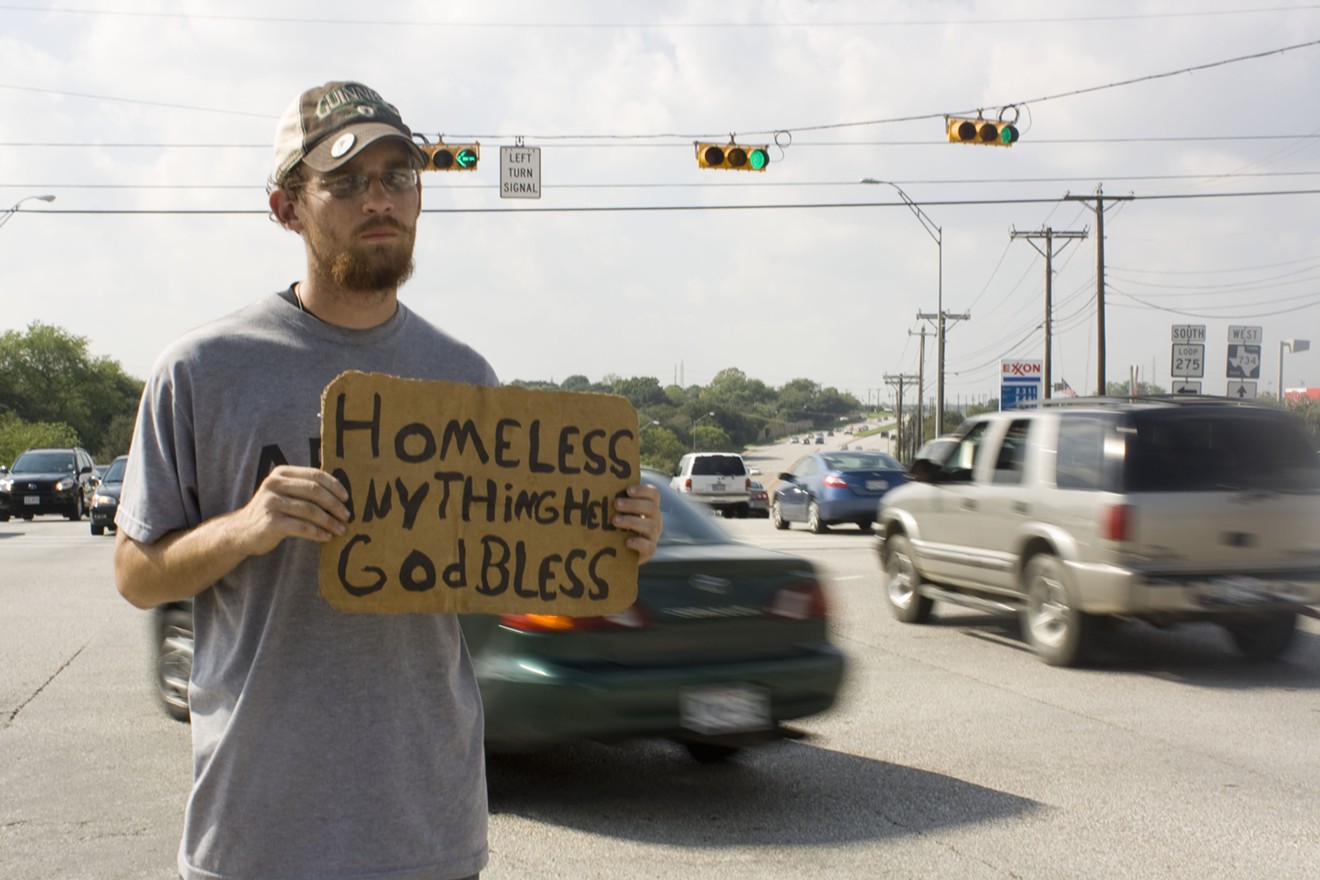A directive from Dallas police Chief U. Renee Hall issued the following week again emphasized panhandling enforcement using the roadway solicitation ban. Both moves are intended to keep the city out of legal trouble. For the past two years, courts across the country have stuck down panhandling bans.
The problem is that the city's law against panhandling along roadways might not pass a court challenge, either, says a lawyer with the American Civil Liberties Union of Texas.
In 2015, the U.S. Supreme Court decided Reed v. Gilbert, a case that slapped down an Arizona town for banning a church from posting temporary directional signs while allowing residents to post political signs of the same size. Using Gilbert as precedent, homeless advocacy groups have won a series of verdicts establishing panhandling as protected free speech, leaving Dallas' solicitation by coercion law, which also bans panhandling between sunset and sunup and in downtown and Deep Ellum, vulnerable to a challenge.
"When courts analyze these panhandling ordinances, they generally find that they're content-based restrictions on speech and expression because it's saying you can't speak in this particular way in [an] area." – ACLU of Texas attorney Kali Cohn
tweet this
"Courts have held that panhandling is a form of charitable donation that is protected expression," says Kali Cohn, a staff attorney for the ACLU of Texas, one of the groups that's fought panhandling laws across the state. "When courts analyze these panhandling ordinances, they generally find that they're content-based restrictions on speech and expression because it's saying you can't speak in this particular way in [an] area."
Cohn says that by banning panhandling in the Central Business District and Deep Ellum but allowing other kinds of speech, like busking, the city has created an unconstitutional content restriction on the speech of residents and visitors to those areas. The same goes for the ban on panhandling near ATMs and gas pumps. By not enforcing those provisions of city code, DPD hopes it can stave off a potential legal challenge because it won't be creating potential plaintiffs for a suit by issuing citations.
But the city ordinance the department is explicitly enforcing isn't enforced uniformly.
"The solicitation on a roadway ordinance is messed up because we don't enforce it evenhandedly," Dallas City Council member Philip Kingston says. "We let the firefighters fill the boot, but then if you ask somebody for something on a roadway, then you're breaking the law."
Cohn wouldn't comment on whether the ACLU of Texas plans to sue Dallas over its panhandling enforcement but said a court likely wouldn't look favorably on the city's ordinance.
"I don't want to comment directly on whether [Dallas's panhandling rules] are or aren't subject to a challenge," Cohn says, "but, based on current case law around the country, provisions like that have been found to be problematic."












